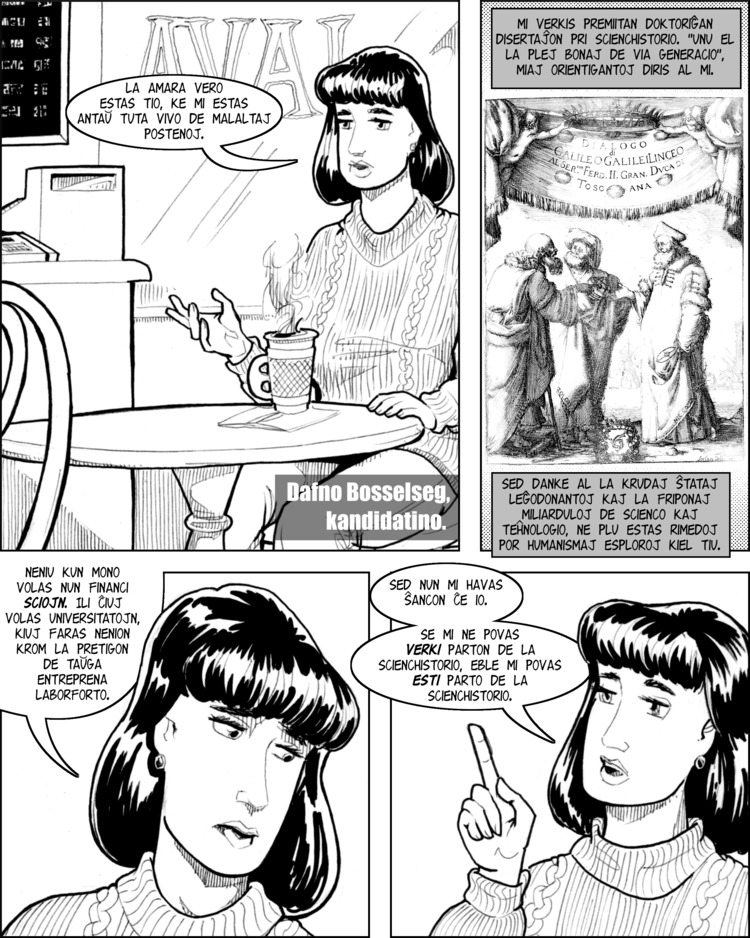

This work is licensed under a Creative Commons Attribution-NonCommercial-ShareAlike 4.0 International License.
PAGE 28 (Four panels)
Panel 1: DAPHNE BOSSELSEG (“Daphne”) sits in a coffeehouse, being interviewed. There is coffee on the table in front of her. Daphne is a dark-haired, dark-eyed, intense-looking youngish woman who wears a dark cable sweater and blue jeans.
Daphne (1): The bitter truth is, I’m facing a lifetime of asking “Do you want fries with that?”
Translation (1): La amara vero estas tio, ke mi estas antaŭ tuta vivo de malaltaj postenoj.
SUBTITLE (2): Daphne Bosselseg, prospective subject.
Translation (2): Dafno Bosselseg, kandidatino.
Panel 2: Front panel of the first edition of Galileo’s Dialogue Concerning the Two World Systems, over which are layered the captions of Daphne speaking.
CAPTION – DAPHNE NARRATING (3): I wrote an award-winning Ph.D. dissertation in the history of science. “One of the best of your generation,” my advisors told me.
Translation (3): Mi verkis premiitan doktoriĝan disertaĵon pri scienchistorio. “Unu el la plej bonaj de via generacio”, miaj orientigantoj diris al mi.
CAPTION – DAPHNE NARRATING (4): But thanks to yahoo state legislators and asshole STEM billionaires, there’s no funding for humanistic research like that anymore.
Translation (4): Sed danke al la krudaj ŝtataj leĝodonantoj kaj la friponaj miliarduloj de scienco kaj teĥnologio, ne plu estas rimedoj por humanismaj esploroj kiel tiu.
Panel 3: Daphne back in interview position. She looks glum and pensive.
Daphne (5): No one with money wants to fund knowledge anymore. They all want universities that do nothing but make a compliant corporate workforce.
Translation (5): Neniu kun mono volas nun financi sciojn. Ili ĉiuj volas universitatojn, kiuj faras nenion krom la pretigon de taŭga entreprena laborforto.
Panel 4: Daphne being interviewed. She has brightened up, just a little.
Daphne (6): But now I have a chance at something.
Translation (6): Sed nun mi havas ŝancon ĉe io.
Daphne (7): If I can’t write part of the history of science, then perhaps I can be part of the history of science.
Translation (7): Se mi ne povas verki parton de la scienchistorio, eble mi povas esti parto de la scienchistorio.
![]() Logaĵo (Esperanto/Longpaĝa versio)
Logaĵo (Esperanto/Longpaĝa versio)
Logaĵo (Esperanto/Diapozitivila versio)
